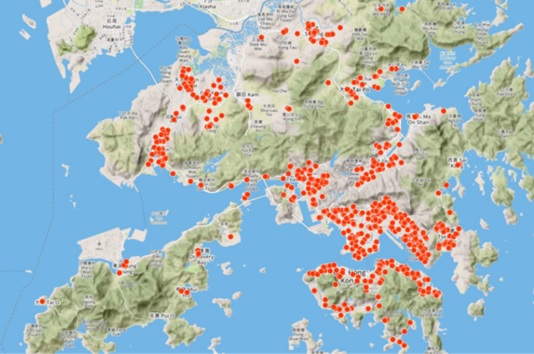You are here
“Not knowing where to seek information” was the main barrier to better self-prepare for disasters – University of Hong Kong found in a project funded by the HKJCDPRI Research Grant 2015 funded project
“Not knowing where to seek information” was the main barrier to better self-prepare for disasters – University of Hong Kong found in a project funded by the HKJCDPRI Research Grant 2015 funded project
The research titled “Cross-section study on disaster preparedness of Hong Kong citizens using GPS spatial sampling methodology” conducted by University of Hong Kong under the HKJCDPRI Research Grant 2015 programme intended to assess Hong Kong civil society’s perceived and actual preparedness in a variety of disaster scenarios, as well as their preferred modes of communication and information access during a disasters. The survey, available in English and Cantonese, was collected via KoBoToolbox and relied on Global Positioning System (GPS) software to randomly sample locations and therefore obtain a representative sample of the population. A total of 1,023 Hong Kong Residents were interviewed.

Map of GPS coordinates visited for the study
This study provided essential information regarding the respondents’ disaster information acquisition, communication plan, evacuation strategies, first-aid and disaster knowledge, financial resilience, and preparedness behaviours. The survey showed that television remains the key source of information, both before and during disaster, with young respondents also favouring social media and the internet and elder residents preferring television and radio in receiving information. The majority of the respondents did not have adequate first-aid knowledge and few showed correct understanding of a typhoon warning signal. Only 39.4% had an evacuation kit. Respondents’ rating on the city’s preparedness was mixed. Correct responses to first aid questions and a typhoon warning signal was significantly associated with the preparation of a kit. Residents with elderly household member(s) were significantly less likely to do so.
Based on this survey, it is concluded that community resilience-building programs should tailor information provision to different age groups using multiple channels, with a focus on the family caregivers of elderly residents. There is a need to promulgate first-aid training, disaster education, and the development of family communication plans during emergencies in the community.
For more information, please contact the HKJCDPRI Secretariat at [email protected] or at 2871-8507.



